Cats are often portrayed as curious, nimble hunters with a penchant for pouncing on anything that moves. Their play often involves stalking, chasing, and ultimately, devouring their unsuspecting prey.
But what happens when this prey consists of peculiar critters like mosquitoes? Can cats eat mosquitoes, and if they do, what are the potential implications?
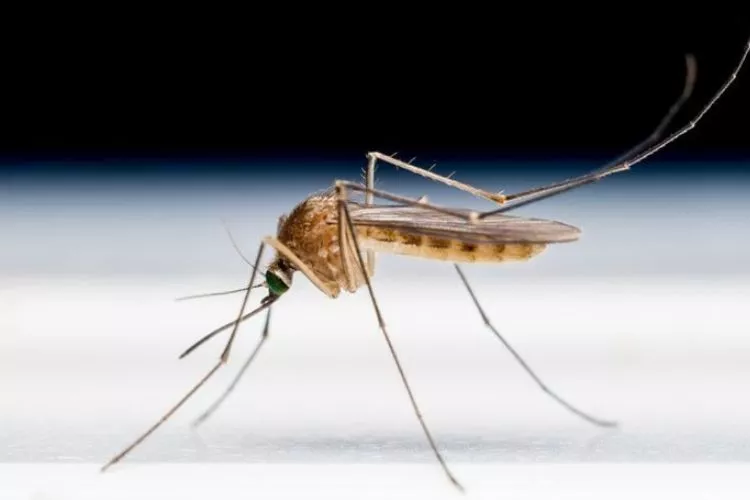
This article aims to address these intriguing questions and delve into the dietary peculiarities and nutritional needs of our feline companions.
🐾 Can cats eat mosquitoes?
Yes, cats can eat mosquitoes. Their natural predatory instinct often drives them to catch and eat small insects including mosquitoes. However, it’s crucial to understand that mosquitoes are not a healthful or necessary part of a cat’s diet.
In fact, eating mosquitoes might put your cat at risk as mosquitoes can carry diseases, such as heartworm that infect cats. Although it’s not overly common, it can happen, and the result could be potentially harmful to your feline companion.
Therefore, the ingestion of mosquitoes should not be encouraged. Always ensure your cat’s diet primarily consists of balanced cat food formulated to meet their nutritional needs instead.
If mosquitoes are a problem in your area, consider using pet-safe insect repellents and regular veterinary check-ups for overall preventive healthcare. Remember, it is essential to keep our feline friends safe at all times, even when their natural instincts kick in.
🐾 Can cats get worms from eating mosquitoes?
Yes, cats can potentially get worms from eating mosquitoes, although the risk is generally low. Mosquitoes by nature do not typically carry or transport intestinal parasites that can infect cats. However, there are some possible, albeit unusual, ways that worms could potentially be transmitted:
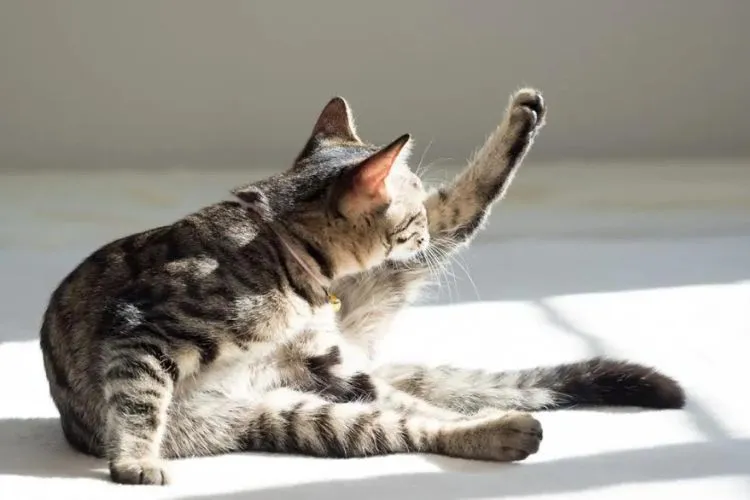
- If mosquitoes have fed on an infected animal, such as a rodent or bird, they may carry larvae or eggs of specific parasites on their bodies. Consequently, if a cat then consumes the mosquito, it’s remotely possible for the parasite to be transferred.
- The risk is slightly higher when it comes to heartworm larvae transmitted by mosquitoes. Mosquitoes can acquire heartworm larvae whilst feeding on an infected animal, such as a dog. Should they then bite a cat, there’s a small probability the larvae could mature into an adult heartworm residing in the cat’s heart and lungs. However, it’s important to note that heartworm infections are more common in dogs, and transmission from mosquitoes to cats is relatively rare.
- Incidences may also occur where feline intestinal parasites, such as hookworms or roundworms, could possibly be picked up from the environment by mosquitoes which are then eaten by cats. But this would necessitate precise timing and conditions for the eggs or larvae to survive on the mosquito’s body until ingestion occurred.
In general, while possible, the chances of cats getting worms from eating mosquitoes are quite low. Therefore, it’s crucial to maintain your cat’s health check-ups regularly and provide them with a balanced diet to prevent worms.
🐾 Nutritional Impact of Eating Mosquitoes
When it comes to the nutritional aspect of cats eating mosquitoes, the reality is there’s little to no benefit involved.
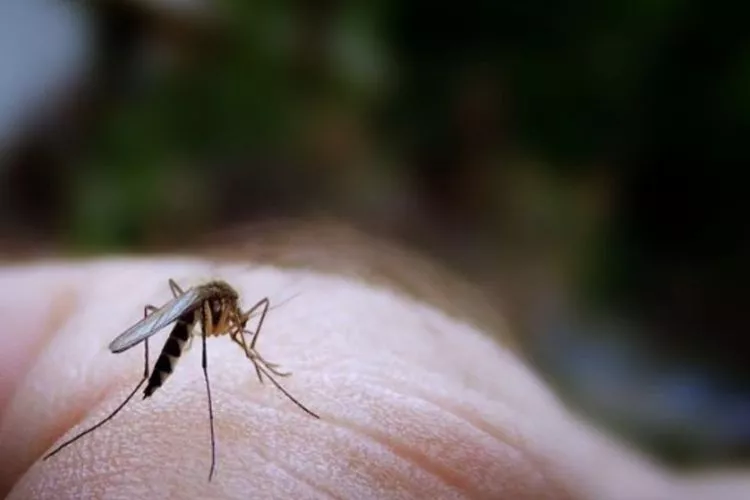
The Lack of Nutritional Value in Mosquitoes
Mosquitoes, as a matter of fact, don’t provide any significant nutritional value to a cat’s diet. Cats, being obligate carnivores, need a high protein diet which ideally comes from meat.
The protein that a minuscule insect like a mosquito could theoretically offer is negligible compared to the dietary needs of the average cat.
The Role of Instincts
The act of a cat eating a mosquito is more likely tied to their instinctive behavior – their natural predatory nature pushing them to hunt. Mosquitoes, being rapidly moving small creatures, trigger the cat’s instinctual drive to chase and capture them.
🐾 Health Risks Associated with Eating Mosquitoes
The consumption of mosquitoes can carry some potential health risks for cats.
The Threat of Heartworm Disease
One significant risk is the transmission of heartworm disease. Mosquitoes are intermediate hosts for heartworms; they pick up microscopic baby worms (larvae) from infected animals and can transmit them to cats via bites.
While instances of cats catching heartworms from eating a mosquito are rare, basic caution is still advised.
General Infection and Disease Risk
Beyond heartworms, other parasites or microbes that might have been harbored by mosquitoes also pose potential risks. Even local infections may occur if the cat injures itself while trying to catch the mosquito.
In conclusion, while there are negligible nutritional benefits, there might be definitive health risks involved with cats eating mosquitoes. This emphasizes the importance of safeguarding cats against these insects and focusing on providing them a balanced diet.
🐾 Ways to Safeguards Cats Against Mosquitoes
As a cat owner, ensuring your feline friend’s safety from mosquitoes and the potential diseases they carry is of utmost importance.
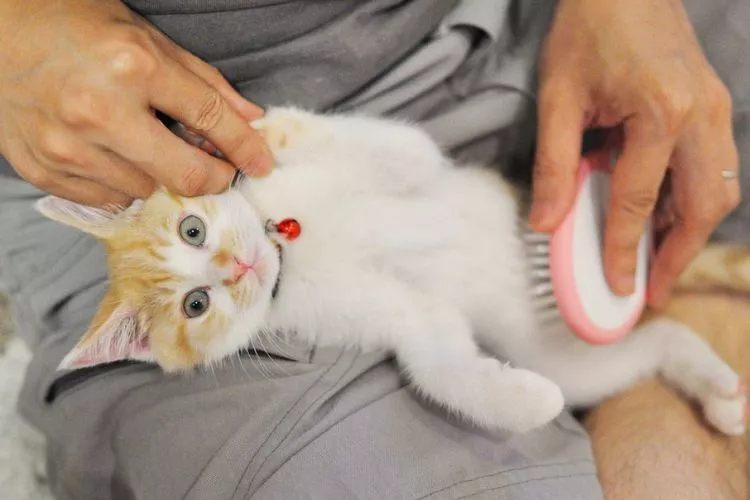
Using Pet-Friendly Mosquito Repellents
Some mosquito repellents are safe for use around cats. It’s crucial to choose pet-safe products, as certain common ingredients in human mosquito repellents, such as DEET, can be toxic to cats.
Ensure to buy products specifically marked as safe for pets. These can include certain sprays, wipes, and diffusers.
Fortifying the Indoor Environment
Maintain a mosquito-free home through different measures such as:
- Installing mosquito screens on windows and doors to prevent their entry.
- Regularly empty and clean any indoor water holding containers where mosquitoes might breed.
- Using air conditioning and keeping indoor humidity low to create an environment less attractive to mosquitoes.
🐾 Alternative Ways to Stimulate Cats’ Hunting Instincts
Because the predatory instinct is a natural part of a cat’s behavior, finding safe alternatives for them to exercise this instinct is essential.
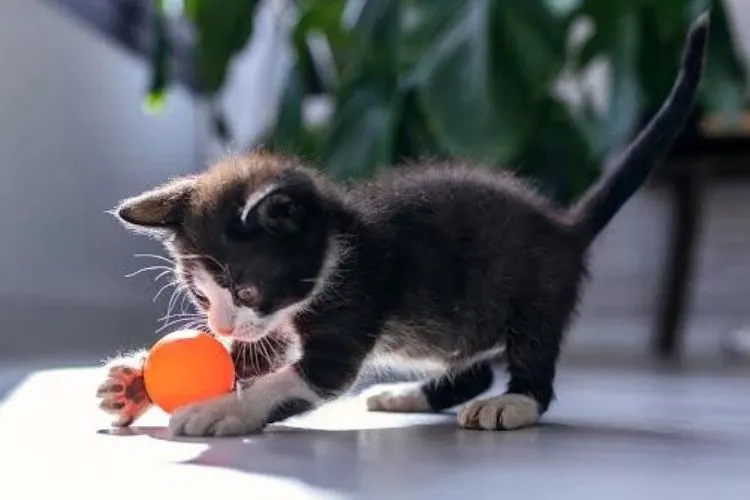
- Interactive Toys: Numerous cat toys mimic the act of hunting. Battery-operated mice, feather wand toys, and laser pointers are excellent for engaging cats in chase and pounce games.
- Puzzle Feeders: Puzzle feeders require cats to solve a puzzle to get to their food, simulating the mental stimulation received during hunting.
- Regular Playtime: Engaging in regular playtime with your cat can satisfy their hunting instincts while strengthening your bond. This playtime exercise can include games that simulate stalking and pouncing.
By focusing on these protective measures and alternative activity solutions, you allow your feline to indulge their instincts safely.
You may also read: Are Lightning Bugs Poisonous to Cats? | Are Millipedes Poisonous to Cats?
Conclusion:
In summary, whilst a cat may occasionally catch and eat a mosquito in a natural predatory response, it isn’t an activity to be encouraged or relied upon for mosquito control.
Mosquitoes carry diseases harmful to both humans and cats, including heartworm. The consumption of such insects poses a risk of transferring these diseases.
For your cat’s well-being and safety, focus on a well-balanced nutritious diet, and inside your homes, implement effective pest-control measures to guard against mosquitoes and their associated health risks.
Ultimately, the answer to “Can cats eat mosquitoes?” is a cautionary, “Yes, but they shouldn’t.”
